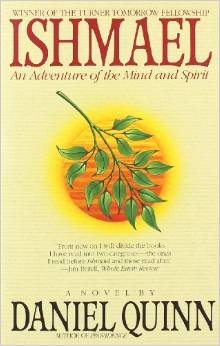- Doing Strategy: How it all fits together
- Doing Strategy: What’s in a Strategy?
- Strategy: Starting with Why
- Are “Guiding Principles” the same as a “Strategy”?
- Strategy: Why so many perspectives?
- Reading List: Ishmael, An adventure of the Mind and Spirit
I talk a lot about technology strategy and the importance of technology strategy to business strategy. I think it is important to understand the importance of technology historically in order to grasp what is actually at stake here. For that, best to go back to ancient times and look at what effect past technological advances have had on people.
Let me just cut to the chase. The primary purpose of technology to business is to exploit it to gain competitive advantage. The main point of competitive advantage is to use it against your competitors. Extreme cases of advantage generally are used to wage war against ones competitors. War is not the same as competition. Competition is natural as all plants and animals compete. This is the basis for evolution (or creation if you prefer). War, a uniquely human activity–and specifically unique to man after the advent of technology, means to annihilate ones competition completely as much as possible.
This means that you need to think beyond basic competitive advantage. Does a new technology give your competitors sufficient advantage to wage war? Think about…
- the capability to manipulate oil prices being used to wage an economic war against a nation,
- the capability to manipulate local or national elections being used to wage a political or economic war against a class,
- the ability to attack networks and computers being used to wage an electronic war against an organization or group
…but content for another post because I am wandering well beyond the scope of the book now.
A notable instance of this is the ferocity with which agricultural and post-agricultural peoples have murdered hunter/gatherer, herdsmen and other pre-agricultural peoples for thousands of years. Consult Wikipedia on this if you like which, at the time of my reading it, included: “Modern scholars typically view the stories of Adam and Eve and Cain and Abel to be about the development of civilization during the age of agriculture; not the beginnings of man, but when people first learned agriculture, replacing the ways of the hunter-gatherer.”
An easy and inspiring read about this can be found in Ishmael, An adventure of the Mind and Spirit:

Pingback: Alan’s Reading List Summary | Alan Street